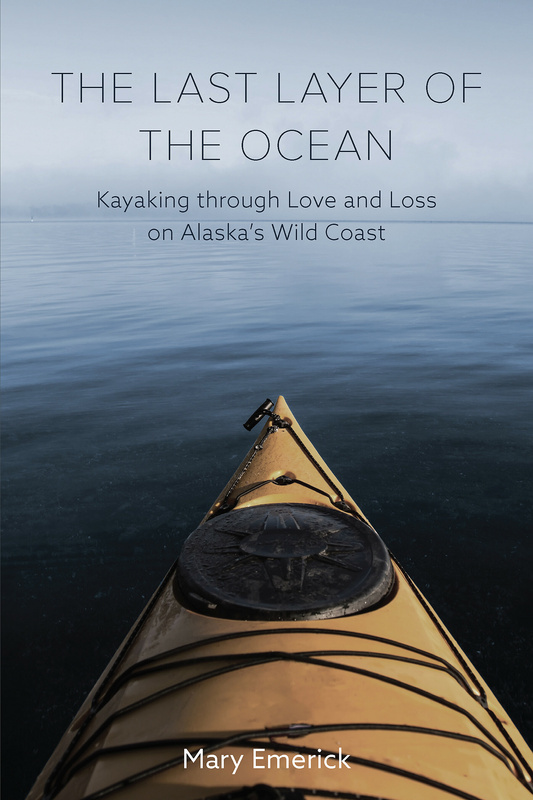The Last Layer of the Ocean
Kayaking through Love and Loss on Alaska's Wild Coast
By Mary Emerick
Oregon State University Press
There are five layers of the ocean, though most of us will only ever see one. The deepest layer is the midnight zone, where the only light comes from bioluminescence, created by animals who live there. In order to see, these creatures must create their own light. They move like solitary suns, encased in their own bubbles of freezing water. This is the most remote, unexplored zone on the planet. Though hostile to humans, it’s a source of rapt fascination for Mary Emerick, who would go there in a heartbeat if she could.
The year Emerick turned 38, the suicide of a stranger compelled her to uproot her life and strike out for Alaska, taking a chance on love and home. She learned how to travel in a small yellow kayak along the rugged coast, contending with gales, high seas, and bears. She pondered the different meanings of home from the perspectives of people who were born along Alaska’s coast, the first peoples who had been there for generations, newcomers who chose this place for themselves, and the many who would eventually, inevitably leave. When she married a man from another island, convinced that love would stick, she soon learned that marriage is just as difficult to navigate as the ocean.
Divided into sections detailing the main kayaking strokes, with each stroke serving as metaphor for the lives we all pass through and the tools needed to stay afloat, this eloquent memoir speaks to the human need for connection—connection to place and to our fellow travelers casting their bubbles of light in the depths.
The year Emerick turned 38, the suicide of a stranger compelled her to uproot her life and strike out for Alaska, taking a chance on love and home. She learned how to travel in a small yellow kayak along the rugged coast, contending with gales, high seas, and bears. She pondered the different meanings of home from the perspectives of people who were born along Alaska’s coast, the first peoples who had been there for generations, newcomers who chose this place for themselves, and the many who would eventually, inevitably leave. When she married a man from another island, convinced that love would stick, she soon learned that marriage is just as difficult to navigate as the ocean.
Divided into sections detailing the main kayaking strokes, with each stroke serving as metaphor for the lives we all pass through and the tools needed to stay afloat, this eloquent memoir speaks to the human need for connection—connection to place and to our fellow travelers casting their bubbles of light in the depths.
Mary Emerick started a successful kayak ranger program in Southeast Alaska, where she lived for seven years. Prior to becoming a kayak ranger, Mary Emerick traveled around the country fighting wildfires, giving cave tours, planting trees, and conducting wilderness patrols. She is the author of the novel The Geography of Water and Fire in the Heart: A Memoir of Friendship, Loss and Wildfire. She currently is a wilderness and recreation specialist with the US Forest Service in Northeast Oregon, and continues to kayak whenever she can.
maryemerick.com
maryemerick.com





